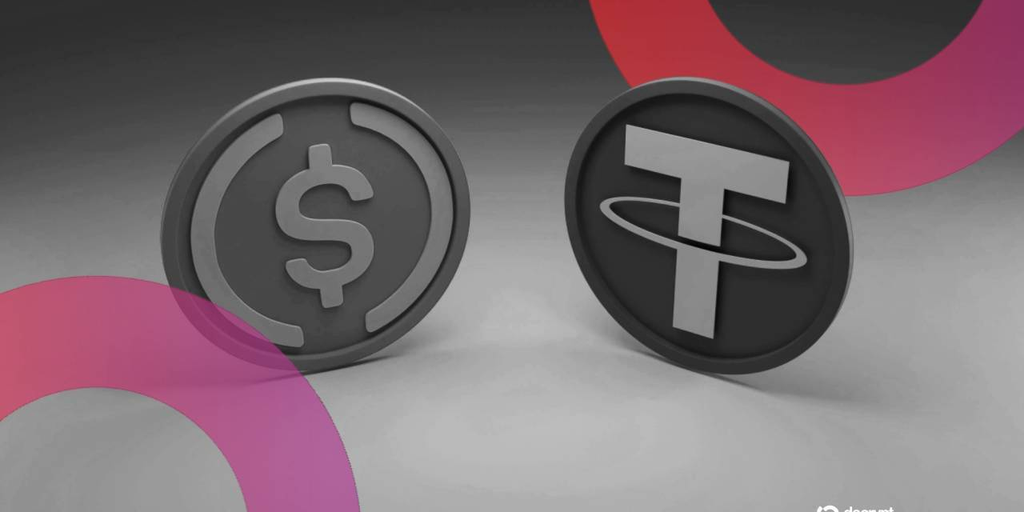
Summary
- Leaders from Circle and Tether are scheduled to meet with prominent members of major South Korean financial institutions this week, according to local media reports.
- The agenda will likely focus on the possible distribution and application of dollar-pegged stablecoins in South Korea, alongside discussions about issuing won-pegged stablecoins.
- Differing viewpoints on stablecoin regulation have emerged from South Korea’s ruling and opposition parties.
Following reports about South Korea’s plans to introduce a legal framework for stablecoins in October, top executives from major financial groups in the country are set to meet with leaders from Tether and Circle Internet Group this week.
Tether produces USDT, whereas Circle produces USDC, which are the two largest stablecoins globally by market capitalization.
According to the Korean news outlet Yonhap, the executives will explore the potential use and distribution of dollar-pegged stablecoins in South Korea, as well as the issuance of stablecoins linked to the local currency, the won.
Shinhan Financial Group’s CEO, Jin Ok-dong, and Hana Financial Group’s CEO Ham Young-joo are expected to have individual meetings with Circle President Heath Tarbert on Friday. Ham is also slated to meet with an unnamed representative from Tether later that day.
Additionally, KB Financial Group’s Chief Digital & Information Technology Officer Lee Chang-kwon and Woori Bank President Jeong Jin-wan are reportedly planning to meet with Circle’s President, though a specific date has yet to be confirmed.
Rajiv Sawhney, who leads International Portfolio Management at Wave Digital Assets International, finds this development noteworthy, particularly given the historical approach of South Korean regulators to cryptocurrency.
“Regulators have traditionally made it difficult for foreign entities to register and operate in the region,” he shared with Decrypt. “It remains a highly domestic market, with exchanges there exclusively permitted to list spot products, avoiding perpetuals or leverage trading.”
He noted that Upbit, the largest exchange in South Korea, is completely owned and operated by Korean nationals, and trades are mainly quoted against the Korean won fiat currency.
South Korea and Stablecoins
Despite President Lee Jae-myung’s perceived pro-crypto stance, the establishment of fitting legal frameworks has sparked political contention in the nation. During his tenure, there has been movement toward the legalization of Bitcoin ETFs, while regulatory scrutiny concerning crypto KYC and AML requirements has intensified.
The ruling and opposition parties have articulated divergent views on stablecoin regulation, with the opposition Democratic Party currently deliberating the adoption of interest-generating stablecoins and the imposition of strict capital controls.
In parallel, central bank officials in Korea have contemplated connecting their deposit tokens to a public blockchain, facilitating their coexistence with privately issued stablecoins.
However, these factors haven’t deterred some Korean companies from moving ahead with plans for their own stablecoins, with Kakao, a South Korean internet conglomerate, recently applying for trademarks related to a Korean won-based stablecoin.
Sawhney suggested that a collaborative effort or partnership between Circle or Tether and one of the local banks could help them “sustain their market presence in the stablecoin sector” in competition with South Korean fintech firms launching their own won-based stablecoins.
Daily Briefing Newsletter
Receive the top news stories every day, including original features, podcasts, videos, and more.

